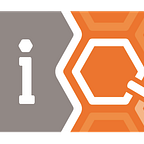Dangers of Quantum Hacking: A Threat To Encryption
Quantum Computers are the future. They are capable of storing and managing large-scale data. They can do unprecedented calculations within a seconds and have all the solutions to the storage and compliance problems faced by regular computers. But its biggest advantage lies in its scale. Such a large application mechanism will give the hackers enough resources to breach and replicate private data from our feeds. This process is Quantum Hacking. So how should we be aware of Quantum Hacking? Read on to find out.
What is Quantum Hacking?
Quantum hacking is the process of using a computer application to infiltrate the application framework of other computer system interfaces. This practice is commonly practiced by modern data encryptors who decipher information using private and public encryption keys. They access public servers and steal information that is considered to be sensitive. Encryption involves complex mathematical codes. Deciphering them is a complicated process done only through quantum computers.
A mainframe protection server needs to be built to disallow the hackers to penetrate the software framework of the companies. Otherwise once the hackers gain access they can replicate data and steal necessary information and manipulate them according to their desire.
When quantum hacking becomes possible, a system that repairs the existing internet security practices needs to be developed. If not, it would be easy for hackers to break through data and cause costly issues.
Threat to Encryption
It is believed that quantum-optimized algorithms and artificial intelligence will be used simultaneously. Quantum results are obtained through qubits, a measure for analyzing data sets in quantum computers. The bigger the data the more qubits are necessary. Therefore complex quantum algorithms are installed into the encryption environment to eliminate any chances of a breach in the system environment.
There is an increasing fear among cybersecurity specialists that quantum computing, however beneficial, would give rise to quantum hacking and thereby compromise the integrity of the computer mechanism used to store and maintain data. One day all encrypted files could be decrypted. Already hackers have been using mobile devices that can collect credit card information with the credit card holder being unnoticed. Such practices are done when the imprint of the four-digit code of the cardholder is tracked using digital applications by the hacker.
The hacker traces the source of the digital transactions of the cardholder where the card was used in paying the requisite money. Therefore if not used carefully quantum computing could spell doom for database management applications and websites as they would have a task in their hands to restore data integrity. Therefore quantum computing devices will open the door for remarkably more cyberthreats. There are numerous benefits of quantum computing but if it falls into the hands of malicious actors then it would be dangerous.
Prevention
Quantum Hacking can evolve as a menace if not kept under check properly. Any discrepancy should be nipped in the bud to prevent catastrophic data breaches in the future. Experts say that quantum hacking is only preventable if quantum cryptography encryption keys are so entangled that even the most advanced quantum computers cannot break them. The Quantum Computing Cryptography Key is protected through a three-layered protection mechanism and requires the approval of the code generator to function.
The only drawback to this is that continual encryption would lead to very lengthy keys that would ultimately slow down the process. This would also reduce the speed of processing data and would hamper the normal functioning of the quantum computer system.
Conclusion
Therefore Quantum Computers, although very beneficial, must be used judiciously. Any proliferation in the system can lead to the rise of Quantum Hacking.
